RSS Workshop on
Robust Task and Motion Planning
Key Facts
- Workshop Date
- Sunday, June 23, 2019 @ RSS 2019
- Workshop Location
- 078 00 014, Georges-Koehler-Allee, University of Freiburg, Freiburg,
Germany
- Submission Deadline
- May 28, 2019 (AoE)
- Acceptance Notification
- June 01, 2019
- Organizers
-
Neil T. Dantam, Ye Zhao, Lydia E. Kavraki
- Contents
-
-
Description
-
Invited Speakers
-
Schedule
-
Accepted Posters
Description
This workshop will address a growing need in Task and Motion Planning
(TMP) to tackle the uncertainty, non-determinism, and complex dynamics of
real-world environments. TMP is an active research topic with related work
proceeding in the robotics, AI, controls, and formal methods communities. The
varying focus and assumptions between different communities has produced a
proliferation of approaches addressing different aspects of the problem
space. This workshop will bring together researchers from these different
communities to discuss the challenges and contrasting approaches for robust
TMP. We hope to build on past RSS workshops on formal methods and benchmarks
for TMP to now identify connections among robust TMP approaches and to better
define the scenarios and motivating problems on which the community should
focus.
Audience
This workshop is intended for researchers in robotics, AI planning, motion
planning, and controls who are interested in improving the autonomy of robots
for complex, real-world tasks such as mobile manipulation.
The two main target audiences for the workshop are: (1) members actively
researching new methods, future trends and open questions in task and motion
planning (2) people who are interested in learning about the current
state-of-the-art in order to incorporate these methods into their own
projects. We strongly encourage the participation of graduate students.
This workshop follows the previous workshops on Task and Motion Planning
at RSS 2016,
RSS 2017, and
RSS 2017,
from the same organizers. Past workshops received excellent participation
with approximately 50 attendees, 10 presented posters, and engaging group
discussions. During the previous workshops, numerous questions were raised
regarding handling uncertainty and operating in real-world environments. This
workshop aims to address these needs with specific focus on robust TMP for
real-world uncertainty and complex dynamics.
top
Invited Speakers
Title: Learning Methods for Combined Task and Motion
Planning
 Bio: Tomas Lozano-Perez is currently the School of
Engineering Professor in Teaching Excellence at the Massachusetts Institute
of Technology (MIT), USA, where he is a member of the Computer Science and
Artificial Intelligence Laboratory. He has been Associate Director of the
Artificial Intelligence Laboratory and Associate Head for Computer Science of
MIT's Department of Electrical Engineering and Computer Science. He was a
recipient of the 2011 IEEE Robotics Pioneer Award and a 1985 Presidential
Young Investigator Award. He is a Fellow of the AAAI, a Fellow of the ACM,
and a Fellow of the IEEE. His research has been in robotics
(configuration-space a pproach to motion planning), computer vision
(interpretation-tree approach to object recognition), machine learning
(multiple-instance learning), medical imaging (computer-assisted surgery) and
computational chemistry (drug activity prediction and protein structure
determination from NMR & X-ray data). His current research is aimed at
integrating task, motion and decision-theoretic planning for robotic
manipulation.
Bio: Tomas Lozano-Perez is currently the School of
Engineering Professor in Teaching Excellence at the Massachusetts Institute
of Technology (MIT), USA, where he is a member of the Computer Science and
Artificial Intelligence Laboratory. He has been Associate Director of the
Artificial Intelligence Laboratory and Associate Head for Computer Science of
MIT's Department of Electrical Engineering and Computer Science. He was a
recipient of the 2011 IEEE Robotics Pioneer Award and a 1985 Presidential
Young Investigator Award. He is a Fellow of the AAAI, a Fellow of the ACM,
and a Fellow of the IEEE. His research has been in robotics
(configuration-space a pproach to motion planning), computer vision
(interpretation-tree approach to object recognition), machine learning
(multiple-instance learning), medical imaging (computer-assisted surgery) and
computational chemistry (drug activity prediction and protein structure
determination from NMR & X-ray data). His current research is aimed at
integrating task, motion and decision-theoretic planning for robotic
manipulation.
Taskin Padir
(Northeastern University, USA)
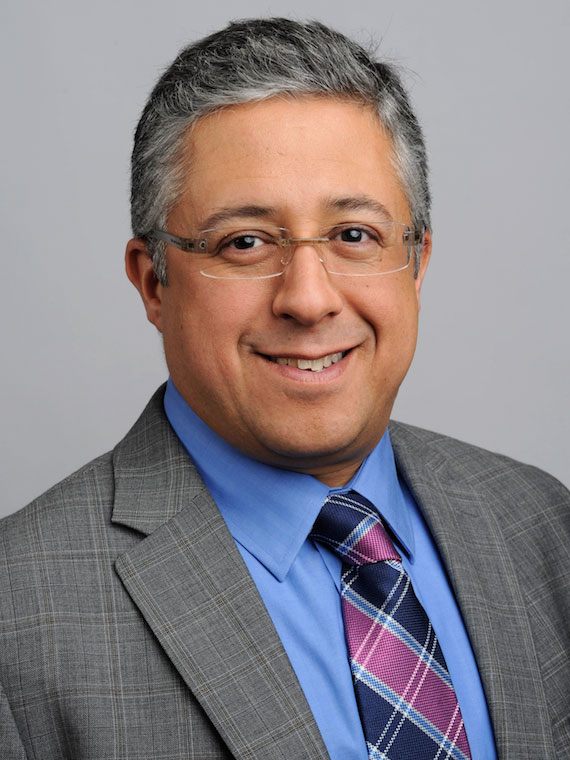
Title: Motion Planning for Humanoids for Task Completion
in Constrained Environments
Bio: Taskin Padir is an Associate Professor of Electrical
and Computer Engineering at Northeastern University. His research interests
involve humanoid robots, dexterous manipulation, model-based robot design,
human-supervised robot autonomy, and medical cyber-physical systems. He was
won the Kalenian Award for Entrepreneurial Spirit, the HEART: Humans
Empowered with Assistive Robot Technologies award, and the Romeo L. Moruzzi
Young Faculty Award for Innovation in Undergraduate Education.
Volkan Patoğlu
(Sabancı University, Turkey)
Title: A Hybrid Planning Approach to Robot Construction
Problems
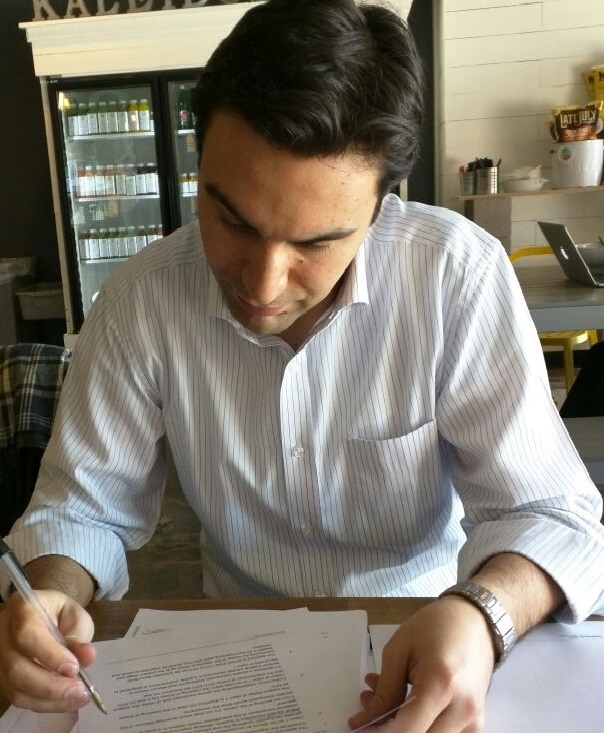
Bio: Volkan Patoğlu is an Associate Professor of
Mechatronics at Sabancı University. His research is in the area of physical
human-machine interaction, in particular, design and control of force
feedback robotic systems with applications to rehabilitation and skill
training. His research extends to cognitive robotics. Dr. Patoglu has been
honored with Career Award by the Scientific and Technological Research
Council of Turkey (2008), Meritorious Service Award by IEEE Transactions of
Haptics (2011 and 2018), Best Application Paper Award by IEEE/RSJ
International Conference on Intelligent Robots and Systems (2013), Best
Conference Paper Nomination by IEEE International Conference on Robotics and
Automation (2015), and Young Scientist Award by Science Academy (2015). He
received his Ph.D. from the University of Michigan and worked as a post
doctoral research fellow at the University of Michigan and as a post doctoral
research associate at Rice University.
Title: Whole-Body Control for Dynamic Locomotion and
Asymmetric Exoskeletons
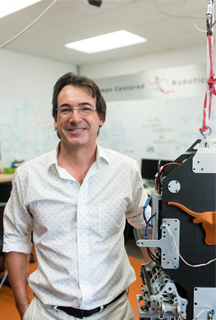
Bio: Luis Sentis is an Associate Professor in the
Department of Aerospace Engineering at the University of Texas at Austin and
a contractor for NASA Johnson Space Center. He leads the Human Centered
Robotics Laboratory, an experimental laboratory focusing on control and
embodiment of humanoid robots. He was the UT Austin's Lead for DARPA's
Robotics Challenge with NASA Johnson Space Center where he helped to design
and test the Valkyrie humanoid robot. His research has been funded by NASA,
the Office of Naval Research, NSF, DARPA, and private companies. He was
awarded the NASA Elite Team Award for his contributions to NASA’s Johnson
Space Center Software Robotics and Simulation Division, and is also
co-founder and scientific advisor of Apptronik Systems Inc., a company
focusing on human-centered robotic augmentation systems and educational
robotic laboratories.
Elisa Tosello
(University of Padova, Italy)
Title: A Cloud-based approach for Task And Motion
Planning: combining Deep Reinforcement Learning and Knowledge Bases
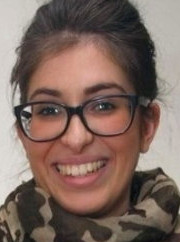
Bio: Elisa Tosello is a Post-Doc and Contract Professor
in the Department of Information Engineering at the University of Padova. She
received her Ph.D. (2017), M.Sc. (2012), and B.Sc. (2009) in Computer
Engineering at the University of Padova. Her research focuses on the Hardware
and Software reuse for the resolution of the Motion Planning problem for
multi-Degrees of Freedom robots. She focuses her attention on the resolution
of the Navigation Among Movable Obstacles and Task and Motion Planning
problem.
Marc
Toussaint (University of Stuttgart / Max Plank Institute, Germany)
Title: Logic-Geometric Programming -- what are limits and
challenges?
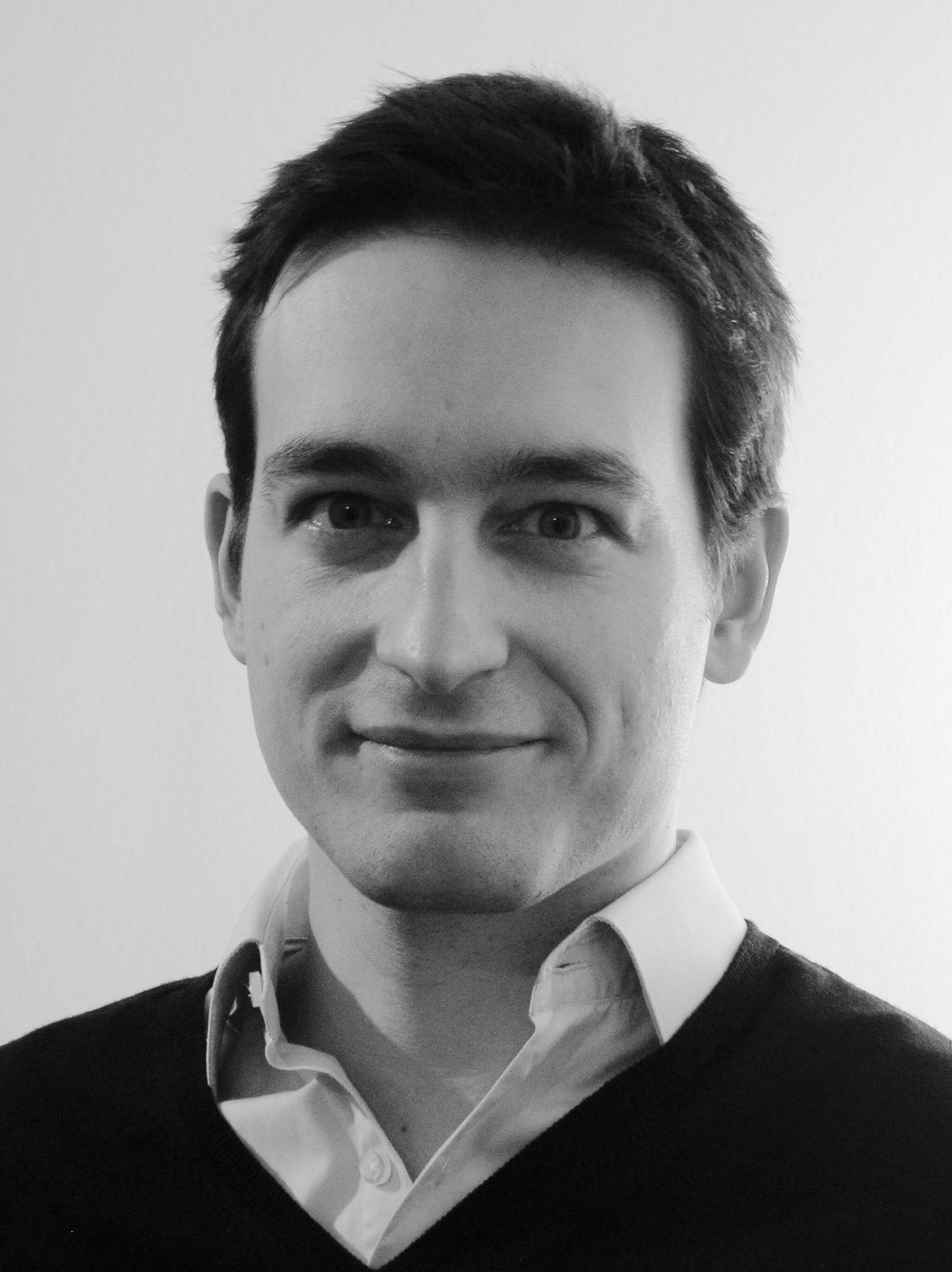
Bio: Marc Toussaint is a professor for Machine Learning &
Robotics at the University of Stuttgart and a Max Planck Fellow at the Max
Planck Institute for Intelligent Systems. His research focuses on the
combination of decision theory and machine learning, motivated by
applications in robotics. The goals are learning systems able to reason about
their own state of knowledge (e.g., in a Bayesian way), to decide which
actions might yield the most informative future data, and to make these
systems learn even better and eventually solve problems. His work takes the
form of Reinforcement Learning, Planning, and Active Learning in
probabilistic relational domains. Furthermore, a growing focus of his lab is
real-world robotic systems and joint symbolic and geometric planning,
including trajectory optimization and optimal control methods.
top
Schedule
| Introduction |
| 09:00-09:15 |
Workshop Introduction |
| Dynamics Session |
| 09:15-9:45 |
Luis Sentis: Whole-Body Control for Dynamic
Locomotion and Asymmetric Exoskeletons
|
| 09:45-10:15 |
Volkan Patoğlu: A Hybrid Planning Approach to
Robot Construction Problems
|
| 10:15-10:30 |
Dynamics Discussion |
| 10:30-11:00 |
Coffee Break |
| Manipulation Session |
| 11:00-11:30 |
Tomás Lozano-Pérez: Learning Methods for Combined
Task and Motion Planning
|
| 11:30-12:00 |
Taskin Padir: Motion Planning for Humanoids for
Task Completion in Constrained Environment
|
| 12:00-12:15 |
Manipulation Discussion |
| 12:15-13:45 |
Group Lunch and Discussion |
| Learning and Optimization Session |
| 13:45-14:15 |
Elisa Tosello: A Cloud-based approach for Task
And Motion Planning: combining Deep Reinforcement Learning and
Knowledge Bases
|
| 14:15-14:45 |
Marc Toussaint: Logic-Geometric Programming --
what are limits and challenges?
|
| 14:45-15:00 |
Learning and Optimization Discussion |
| 15:00-15:30 |
Coffee Break |
| Poster Session |
| 15:30-16:00 |
Poster Lightning Talks |
| 16:00-16:45 |
Poster Presentations
|
| Conclusion |
| 16:45-17:15 |
Panel Discussion and Wrap-Up |
top
Posters
- Fernando S. Barbosa, Lars Lindemann, Dimos V. Dimarogonas, and Jana
Tumova.
Robust Motion Planning with Timed Temporal Logic
Tasks via Hybrid Feedback Control.
- Thomas A. Berrueta, Ana Pervan, and Todd D. Murphey.
Towards Robust Motion Planning for Synthetic Cells
in a Circulatory System.
- Danny Driess, Ozgur S. Oguz, and Marc Toussaint.
Hierarchical Task and Motion Planning using
Logic-Geometric Programming (HLGP). Video.
- Andrea Frank and Laurel D. Riek.
Socially intelligent task and motion planning for
human-robot interaction.
- Mahdi Khoramshahi, You Zhou, Jianfeng Gao, Mirko Wächter, Tamim Asfour,
and Aude Billard.
Reactive Motion Planning for Human-Robot
Cooperative Tasks Under Uncertainties.
- Alexandra Q. Nilles, and Steven M. LaValle.
Robust Combinatorial Planning over Simple Boundary
Interactions.
- Wil Thomason and Ross A. Knepper.
A Flexible Sampling-Based Approach to Task and
Motion Planning.
- Aishwarya Unnikrishnan.
Safely Reconfiguring Formations in Cluttered
Environments.
- Keliang He, Andrew Wells, Lydia Kavraki, and Moshe Vardi.
Efficient Symbolic Reactive Synthesis for Finite-Horizon Tasks.
top
 Bio: Tomas Lozano-Perez is currently the School of
Engineering Professor in Teaching Excellence at the Massachusetts Institute
of Technology (MIT), USA, where he is a member of the Computer Science and
Artificial Intelligence Laboratory. He has been Associate Director of the
Artificial Intelligence Laboratory and Associate Head for Computer Science of
MIT's Department of Electrical Engineering and Computer Science. He was a
recipient of the 2011 IEEE Robotics Pioneer Award and a 1985 Presidential
Young Investigator Award. He is a Fellow of the AAAI, a Fellow of the ACM,
and a Fellow of the IEEE. His research has been in robotics
(configuration-space a pproach to motion planning), computer vision
(interpretation-tree approach to object recognition), machine learning
(multiple-instance learning), medical imaging (computer-assisted surgery) and
computational chemistry (drug activity prediction and protein structure
determination from NMR & X-ray data). His current research is aimed at
integrating task, motion and decision-theoretic planning for robotic
manipulation.
Bio: Tomas Lozano-Perez is currently the School of
Engineering Professor in Teaching Excellence at the Massachusetts Institute
of Technology (MIT), USA, where he is a member of the Computer Science and
Artificial Intelligence Laboratory. He has been Associate Director of the
Artificial Intelligence Laboratory and Associate Head for Computer Science of
MIT's Department of Electrical Engineering and Computer Science. He was a
recipient of the 2011 IEEE Robotics Pioneer Award and a 1985 Presidential
Young Investigator Award. He is a Fellow of the AAAI, a Fellow of the ACM,
and a Fellow of the IEEE. His research has been in robotics
(configuration-space a pproach to motion planning), computer vision
(interpretation-tree approach to object recognition), machine learning
(multiple-instance learning), medical imaging (computer-assisted surgery) and
computational chemistry (drug activity prediction and protein structure
determination from NMR & X-ray data). His current research is aimed at
integrating task, motion and decision-theoretic planning for robotic
manipulation.



